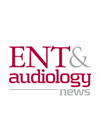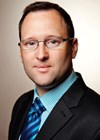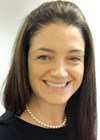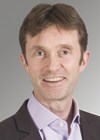News
International Newsround January 2020
Welcome to the January 2020 issue of ENT & Audiology News Digital International Newsround. Please get in touch if you would like to write a report.
Audiology in this issue...The Weird World of Science
Gareth Smith, Consultant Clinical Scientist (Audiology), Southend University Hospital, UK. E: Gareth.Smith@southend.nhs.uk Twitter: @garethlsmith In this edition, I’ve taken rather an editor’s privilege in exploring outside of our mainstays in audiology and widened the field to consider acoustics more widely...
ENT in this issue...BACO 2020
Emma Stapleton, MBChB, FRCS (ORL-HNS), Consultant Otolaryngologist, Cochlear Implant and Skull Base Surgeon, Manchester Royal Infirmary, UK. E: emmastapleton@doctors.org.uk Twitter: @otolaryngolofox Are you going to BACO?” was the question on everyone’s lips. The year was 2006, I was a junior...
From the editor JanFeb 2020
Declan Costello, MA, MBBS, FRCS(ORL-HNS), Editor, ENT & Audiology News; Consultant Ear, Nose and Throat Surgeon, Wexham Park Hospital, Slough, Berkshire, UK. E: d.costello@nhs.net Welcome Happy New Year! It is probably just the fact that I am getting older, but...
World Hearing Day 2020
Dr Shelly Chadha, Dr Karen Reyes - World Health Organization ‘Hearing for life: don’t let hearing loss limit you’, is the theme for World Hearing Day 2020. Annually observed on 3 March, World Hearing Day is the largest global advocacy...
International Newsround December 2019
Welcome to the December 2019 issue of ENT & Audiology News Digital International Newsround. Please get in touch if you would like to write a report.
The EU Medical Device Regulation (MDR)
Back in May 2017, the EU Medical Device Regulation (MDR 2017/745) entered into force, replacing existing directives: Active Implantable Medical Devices (AIMD) In-vitro Diagnostic Directive (IVDD) Medical Device Directive (MDD) By 26 May 2020, the new regulation will have completed...
Do you treat RRP?
Do you treat RRP? Please join the national Airway Intervention Registry: Recurrent Respiratory Papillomatosis (AIR: RRP) online database. This is a unique opportunity to contribute to a collaborative, UK-wide study collecting real world data on treatments for this rare but...
George Davey Howells Prize 2019
Prof Ray Clarke (Liverpool) and Mr John Watkinson (Birmingham and London) have been awarded the George Davey Howells prize for Scott Brown’s Otolaryngology Head and Neck Surgery- 8th Edition, published 2018 .The George Davey Howells prize is awarded by the...
International Newsround November 2019
Welcome to the November 2019 issue of ENT & Audiology News Digital International Newsround. Please get in touch if you would like to write a report.
Fifth Sense wins major funding from the National Lottery Community Fund
Fifth Sense, the registered UK charity for those affected by smell and taste disorders, is delighted to announce that the organisation has been granted an award of £238,815 by the National Lottery Community Fund. The award will deliver the outcomes...
From the editor NovDec 2019
Declan Costello, MA, MBBS, FRCS(ORL-HNS), Editor, ENT & Audiology News; Consultant Ear, Nose and Throat Surgeon, Wexham Park Hospital, Slough, Berkshire, UK. E: d.costello@nhs.net Welcome There are many jokes told by anaesthetists about surgeons, and perhaps even more in the...









